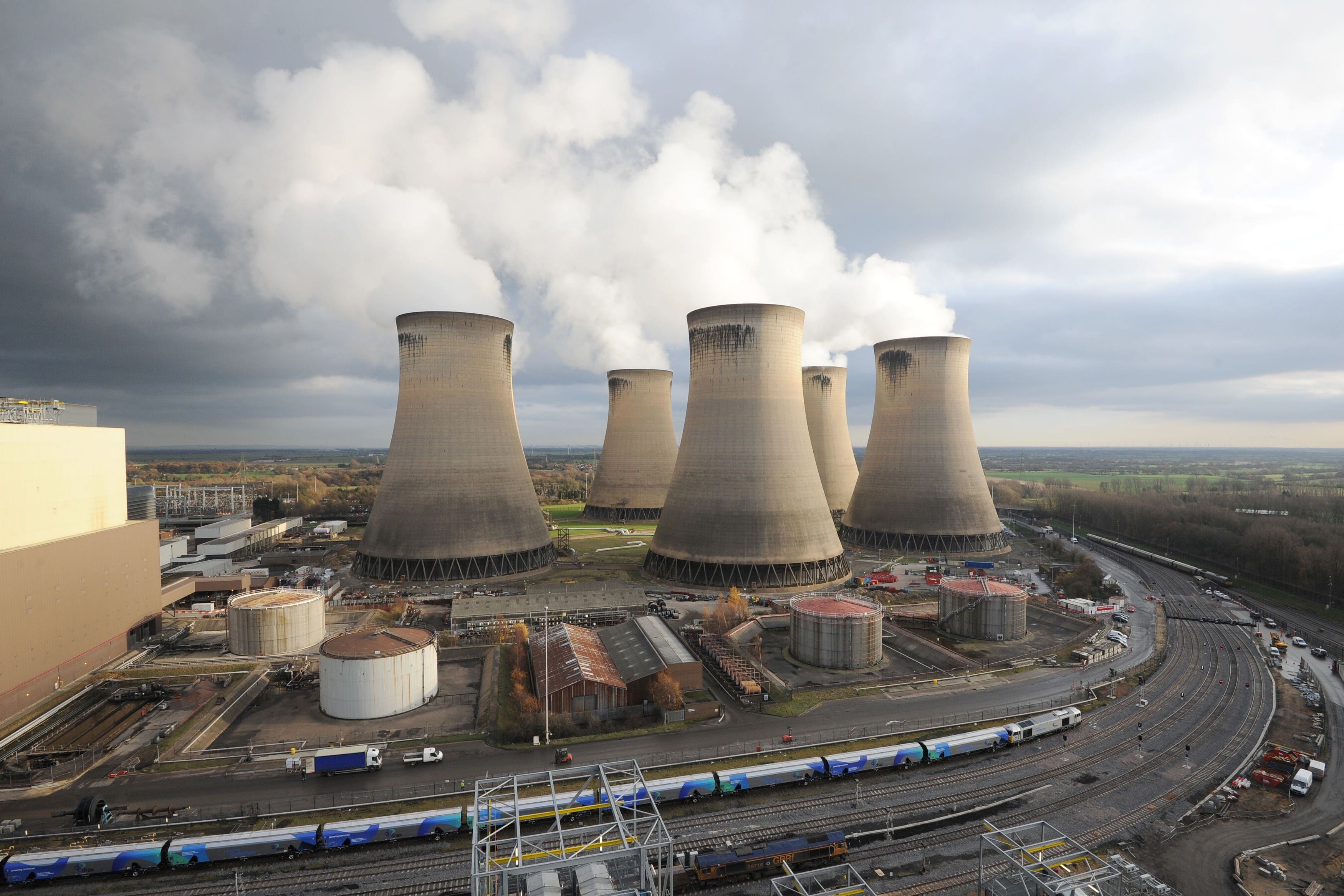Government urged to end subsidies as Drax accused of burning old forest wood
An investigation found that Drax sourced whole logs from primary and old growth forests in Canada.

The Government is being urged not to extend subsidies for biomass as an investigation revealed that Drax is burning wood from rare “old growth” forests in Canada to power UK homes.
Campaign groups Conservation North, Biofuelwatch and Bulkey Valley Stewardship Coalition analysed data published by British Colombia’s government.
They found that Drax, which owns the UK’s largest power station near Selby in North Yorkshire, sourced whole logs from primary and old growth forests – those with unique habitats and ecological functions.
“Drax insisted that they only get their raw material from sustainably managed forests.
“These findings show that this is not the case in British Columbia, where the provincial government is enabling the liquidation of our last Old Growth forests and pulling the British public into this ecocide.”
Drax insisted that they only get their raw material from sustainably managed forests. These findings show that this is not the case in British Columbia, where the provincial government is enabling the liquidation of our last Old Growth forests and pulling the British public into this ecocide
They said a high volume of logs that arrived at Drax’s pellet mills in the Canadian province came from Priority Deferral Areas – rare, at risk and irreplaceable woodland where experts recommend harvesting is deferred.
The BBC, which also published an investigation on Wednesday, said it had obtained documents from British Columbia’s Ministry of Forests showing how Drax took more than 40,000 tonnes of wood from old growth forests.
Drax said it is “confident our biomass is sustainable and legally harvested”.
It comes as a UK Government consultation on proposing new subsidies for Drax and Lynemouth power stations is due to end on Thursday.
Both receive money funded by energy bill payers because the electricity produced from burning wood pellets is classified as renewable.
In theory, burning wood pellets should create carbon-neutral energy because the trees and other plants burnt first absorb carbon, then are burnt and release the same carbon back into the atmosphere.
If the UK Government goes ahead with the new subsidies they have proposed for Drax despite these new revelations, then they can drop any pretence of concern about forest and nature conservation, and delete the word 'sustainable' from their already deeply flawed 2023 biomass strategy
But critics say this assumes that the companies only use sustainable wood in their boilers.
In March, UK Government advisors on the Climate Change Committee said that burning bioenergy with a yet-to-be scaled carbon capture system that could absorb the emissions produced and could be part of a balanced energy mix.
But they added: “There should be no role for large-scale unabated biomass generation beyond expiry of existing subsidy support in 2027.”
More than 50 British and Canadian campaign groups – including Greenpeace, the World Wide Fund for Nature and Friends of the Earth – signed letters sent to Energy Secretary Claire Couthino on Wednesday, calling for the Government to end the burning of forest biomass in UK power stations.
One said: “The evidence is clear: bioenergy fails on every metric. It fails to secure our energy security, fails to ensure value for money for the public purse, fails to help reach net zero and fails to preserve biodiversity or protect human health.
“It is time to consign forest bioenergy to the past and build Britain’s secure energy future based on proven technologies that can be delivered in a nature-positive way, such as wind, solar, warm well-insulated homes, battery storage in addition to the restoration of nature.”
A letter signed by over 165 scientists from universities across countries like the UK, US, Australia, France, Germany, Portugal and the Netherlands, was also sent to the Department for Energy Security and Net Zero (DESNZ).
It said: “Bioenergy is an emerging and growing threat to biodiversity and our climate that must be stopped — not extended and facilitated — if we hope to avert climate disaster and biodiversity collapse.
“For this reason, we oppose extending subsidies to the biomass industry past 2027.”
Michelle Connolly, director of Conservation North, said: “Drax insisted that they only get their raw material from sustainably managed forests.
“These findings show that this is not the case in British Columbia, where the provincial government is enabling the liquidation of our last Old Growth forests and pulling the British public into this ecocide.”
Almuth Ernsting, co-director of Biofuelwatch, said: “If the UK Government goes ahead with the new subsidies they have proposed for Drax despite these new revelations, then they can drop any pretence of concern about forest and nature conservation, and delete the word ‘sustainable’ from their already deeply flawed 2023 biomass strategy.”
A Drax spokesperson said: “As a responsible business we keep our sourcing policy and practices under regular review so that that they take account of evolving forest dynamics, legislation, policy, and science.
“Fibre that Drax has sourced from publicly owned forests in British Columbia has been designated as being available to harvest legally and sustainably by the Government of British Columbia, alongside First Nations.
“We do not own forests or sawmills and are not responsible for the licensing and harvesting of forests.
“Drax sources its biomass from sawmill residues, harvesting residues, and fibre which has little other use or market value.”
A DESNZ spokesperson said: “The UK only supports biomass which complies with our strict sustainability criteria, which are in line with internationally-recognised standards.
“We regularly engage with our regulator Ofgem to ensure that our strict sustainability standards are being met before providing subsidies to these generators – this would be subject to a rigorous value for money assessment to ensure tax and bill-payer money is spent wisely.
“As set out in the biomass strategy, we will be consulting later this year on how we can go further than our peers.”
Bookmark popover
Removed from bookmarks